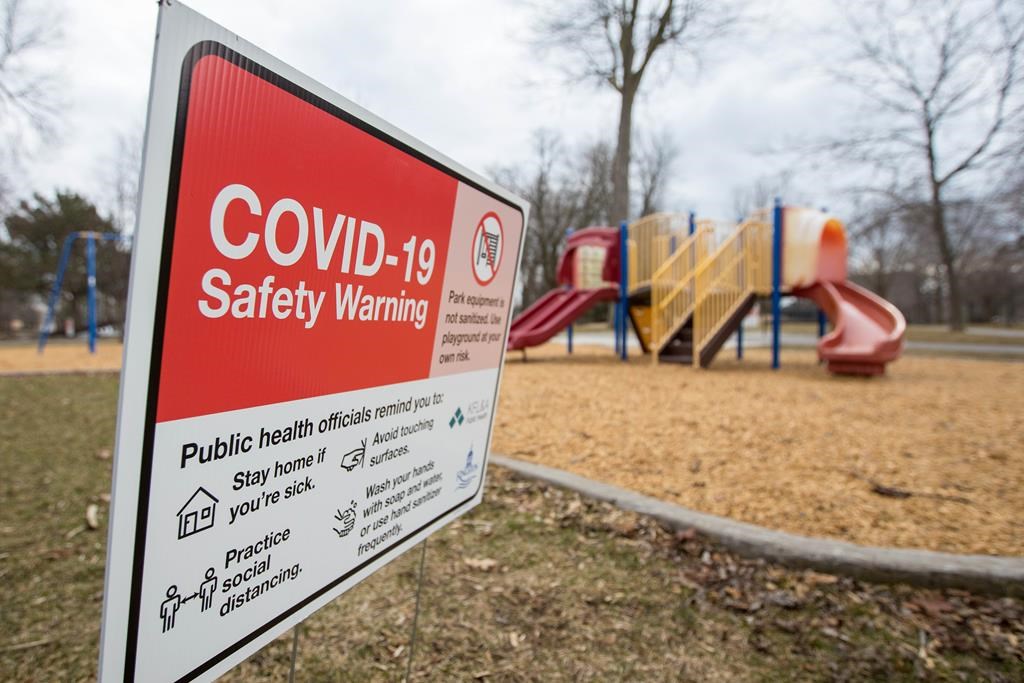According to the City of Kingston, all playgrounds and park amenities are now closed until further notice.

The decision was made at the recommendation of KFL&A Public Health and follows the Ontario city’s declaration of a state of emergency Thursday, in response to the COVID-19 pandemic.

In a statement released Friday morning, the City of Kingston said: “Playgrounds and park amenities encourage group gatherings of more than five people, usage which goes against the physical distancing measures recommended by public health officials. Surfaces in these spaces are not sanitized and represent a risk of community transmission of COVID-19.”
Amenities and public spaces that are closed include:
- Play structures, swings, slides and climbers
- Sports fields and ball diamonds
- Basketball, pickleball and tennis courts
- Off-leash dog parks
- Skateboard parks
- Beaches
- Splash pads
- Park washrooms and buildings
- Benches, picnic tables and shade shelters
While the playgrounds and park amenities are closed, residents are still able to walk through them. The city says “safe park practices” that are permitted include running, walking or jogging.
Residents are asked to keep a two-metre distance from others, which is equal to the length of a hockey stick.
Residents can also walk their dog through a park, where this is allowed, while respecting the established leashing requirements for the site.
Questions about COVID-19? Here are some things you need to know:
Health officials caution against all international travel. Returning travellers are legally obligated to self-isolate for 14 days, beginning March 26, in case they develop symptoms and to prevent spreading the virus to others. Some provinces and territories have also implemented additional recommendations or enforcement measures to ensure those returning to the area self-isolate.
Symptoms can include fever, cough and difficulty breathing — very similar to a cold or flu. Some people can develop a more severe illness. People most at risk of this include older adults and people with severe chronic medical conditions like heart, lung or kidney disease. If you develop symptoms, contact public health authorities.
To prevent the virus from spreading, experts recommend frequent handwashing and coughing into your sleeve. They also recommend minimizing contact with others, staying home as much as possible and maintaining a distance of two metres from other people if you go out.
For full COVID-19 coverage from Global News, click here.











Comments